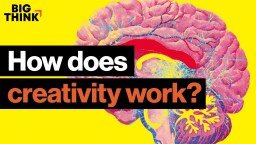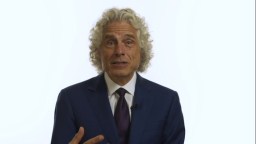physiology
Metal-like materials have been discovered in a very strange place.
The treatment is here, but are we ready?
Two different studies provide further evidence of the efficacy of psychedelics in treating depression.
Their ear structures were not that different from ours.
How do these little beasties detect light anyway?
New anthropological research suggests our ancestors enjoyed long slumbers.
Is the quest to upload human consciousness and ditch our meat puppets the future—or is it fool’s gold?
▸
14 min
—
with
A large-scale study from King’s College London explores the link between genetics and sun-seeking behaviors.
You’re always in control of your breath.
You may be surprised at how your body and brain react to this type of pleasure.
Human brains evolved for creativity. We just have to learn how to access it.
▸
12 min
—
with
Researchers at the University of Copenhagen might have discovered a cure.
Your morning coffee is good for you – if you drink it at the right time.
Dr. Kate Biberdorf explains why boiling water makes it safer and how water molecules are unusual and cool.
▸
3 min
—
with
Study shows ripples across a newly fertilized egg are similar to ocean and atmospheric circulations.
A new study reminds us that physical and emotional pain are not far apart.
In his new book, The Deep History of Ourselves, Joseph LeDoux explains where we come from.
A new study suggests that a device’s night mode may damage sleep hygiene even more.
The processes behind our ability to make decisions are complex, but they’re not miracles.
▸
3 min
—
with
Researchers found that the hearts of Sufi devotees harmonized as one during a mystical practice. And this isn’t the first study to show heart synchronization between people.
Despite acceptance by many insurance companies, a number of studies don’t confirm its effectiveness.
Scientists may have seen a way to cure a maddening symptom of hearing loss.
Are we witnessing evolution in real time?
Our clever human hands may soon be outdone.
A new study looks at astronauts’ brains after they come back home.
Love to drop F-bombs? Thank the shift to agriculture.
Turns out pushups are more telling than treadmill tests when it comes to cardiovascular health.
Lasers solve the mystery of the missing quill.
Between the noise and frustration, we’re suffering more than ever.
A new review article makes the case that you can always use it.





























